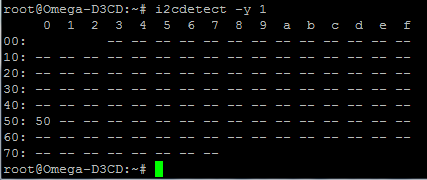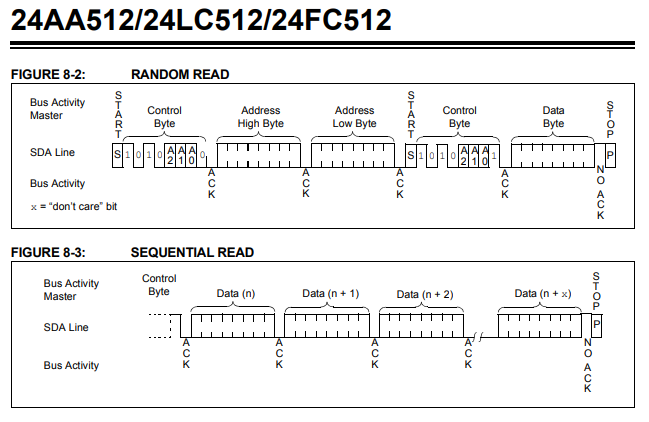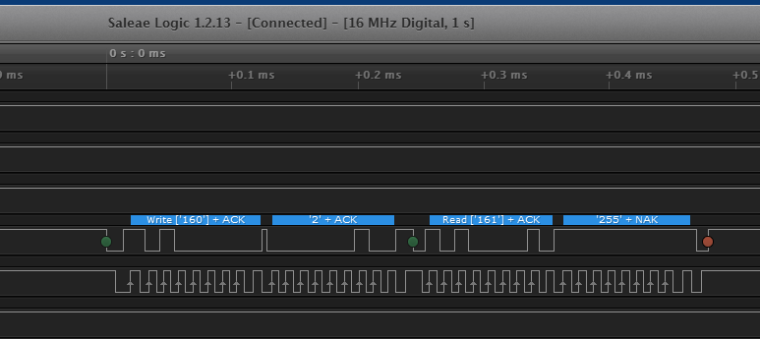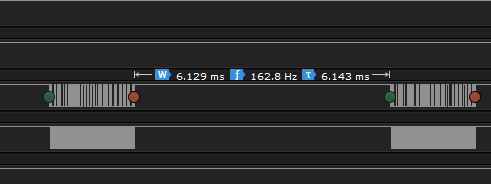i2c Word Addressing?
-
Greetings.
I've followed instructions from @UFD to fix the built-in i2c routines and instead allow bit-banged i2c read and write. Thanks for all the work which went in to that post.

I'm attempting to read and write to a 24c512 EEPROM. Its device address is 0b101000. Per the datasheet the device is expecting a 16 bit address for reading and writing. Best I can tell, command line tools i2cget and i2cset are only sending 8 bits worth.
Here's a capture of me reading from device address 0x50, memory location 0x02. The stored data should be 0xAA.


Is there a way to force these in-built routines to use a word-sized address?I've looked here already without seeing anything obvious:
https://docs.onion.io/omega2-docs/i2c-python-module.html
Thanks for your time.
-
After a few hours of banging around, here are some breadcrumbs for the next soul who wanders this way:
-
The built-in routines only support 8 bit addressing. Full stop.
-
However, there's a smbus2.py library which can handle larger writes. I grabbed it from here and installed it in the python2.7 directory:
https://pypi.python.org/pypi/smbus2/0.2.0
- Then, these folks wrote simple read-eeprom16.py and write-eeprom16.py files, based on smbus which seem stable enough. The reference is halfway down the page:
I renamed 'smbus' as 'smbus2' in the two files like this:
import sys
import smbus2
import time
bus = smbus2.SMBus(1)That said, as written it does not currently support page read / page write, merely 16 byte chunks. So it's very slow. I'll see what I can do to speed things up.
-
-
This is all for tonight... I edited line 33 in write-eeprom.py like this:
# time.sleep(0.1) # needs some time to finish write, or fails [Errno 5]
time.sleep(0.004) # datasheet calls for ~ 5 ms waitWhich gives at 32k write time of ~16 seconds.
Sorting out the page write function will make a big difference as well.
